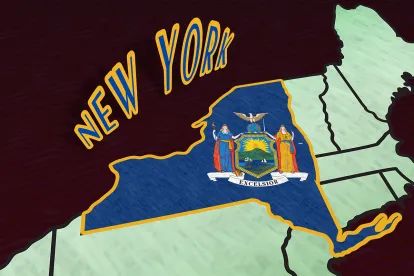Key Points:
-
Proposed taxes on mezzanine and preferred equity financing, and a tax on high-value second homes in New York City (commonly known as a “pied-à-terre” tax), were not included among the revenue-raising measures adopted by the New York State lawmakers in the final budget bill adopted on Wednesday, April 7.
-
This is not the first time these taxes have been proposed and then failed in the New York State legislature, and their proponents are likely to pursue efforts to revive them again.
Late on Wednesday, April 7, the New York State legislature passed the State’s budget for the 2021-22 fiscal year. The real estate industry had been closely following the budget process, due in no small part to two proposed tax measures that would have imposed additional tax burdens on certain real estate assets and transactions: the “mezzanine tax,” which would have subjected mezzanine and preferred equity financing transactions to mortgage recording taxes (the Mezzanine Tax), and the “pied-à-terre” tax, which would have imposed additional taxes on high-value second homes in New York City (the Pied-à-terre Tax). Fortunately for the industry, neither measure was included in the final budget bill that was ultimately adopted by the legislature.
The Mezzanine Tax would have imposed mortgage recording taxes on mezzanine and preferred equity financing transactions (as high as 2.8 percent in New York City for principal amounts of more than $500,000). Changes were also proposed to the New York Uniform Commercial Code (UCC), which would have been revised to provide that (1) remedies under the UCC would not be available to the mezzanine lender or preferred equity investor unless the mortgage recording tax is paid, and (2) a security interest with respect to such mezzanine debt or preferred equity investment may be perfected only if a UCC-1 financing statement is filed. Additionally, the Pied-à-terre Tax would have authorized New York City to impose additional real estate taxes on certain high-value homes not used as principal residences. Taxes would have been authorized at rates of not less than one-half percent and not more than four percent for one-, two- and three-family residences, to be assessed on the portion of market value thereof that exceeded $5 million), and not less than 10 percent and not more than 13.5 percent on condominium and co-op units, to be assessed on the portion of the assessed value thereof that exceeded $300,000.
Although the Mezzanine Tax and Pied-à-terre Tax are stalled for now, the real estate industry will continue paying close attention to legislative developments, as both of these taxes have been proposed — and failed — before in the New York State legislature, only to rise again. Proponents of the Mezzanine Tax and Pied-à-terre Tax can be expected to continue to press for their enactment, and, in fact, stand-alone bills for both the Mezzanine Tax (S3074 in the New York State Senate and A3139 in the New York State Assembly, both in committee as of this writing) and Pied-à-terre Tax (S4199 in the New York State Senate and A5736 in the New York State Assembly, both also in committee as of this writing) are active in both houses of the New York State legislature. Katten will continue to monitor developments with respect to the Mezzanine Tax and Pied-à-terre Tax, as they arise.





 />i
/>i

